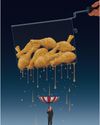How do you save a brand that everyone knows, but not everybody likes? Back in 2014, the toy company Mattel needed an answer to that question-fast. It owns popular brands like Hot Wheels and Fisher-Price, but one of its consistently top-selling products has long been Barbie. The tall, blonde doll enjoyed ubiquity for over half a century, but her popularity was slipping. To many people, Barbie had come to represent outdated standards of beauty and gender norms, and sales had dropped 20% in the prior two years alone. So the company called Richard Dickson, a former Mattel executive who'd left to run a fashion brand, and asked him to come back and save the famed doll. "We were in a real moment of truth around the brand's continued evolution," Dickson says.
But he saw a way forward: They would double down on the brand's deeper mission, and then use that to guide many big changes. As a result, since that critical moment, Barbie sales have more than doubled. The brand had its best year ever in 2021, and was on track for more growth in 2022. Here, Dickson explains how he did it-and why he says that "while evolution makes a brand relevant, purpose makes a brand immortal."
Culture changes rapidly these days. How does that impact the toy business?
This story is from the {{IssueName}} edition of {{MagazineName}}.
Start your 7-day Magzter GOLD free trial to access thousands of curated premium stories, and 9,000+ magazines and newspapers.
Already a subscriber ? Sign In
This story is from the {{IssueName}} edition of {{MagazineName}}.
Start your 7-day Magzter GOLD free trial to access thousands of curated premium stories, and 9,000+ magazines and newspapers.
Already a subscriber? Sign In

Chords of Success
For Saahil Goel, the deep-rooted passion for playing the guitar dates back to his high school days. Influenced by legends like Pink Floyd, Led Zeppelin, and the Pakistani band Strings, his musical journey mirrors his leadership style-balancing focus, discipline, and a collaborative spirit. Goel feels that playing guitar has enhanced his ability to balance focus and teamwork as a founder of an eCommerce shipping start-up.

IS YOUR RENT TOO DAMN HIGH?
Many small business owners struggle with their rents. Here's what to do.

HOW TO BOUNCE BACK FROM A BAD REVIEW
A one-star review can hurt your ego - and your business. But it's possible to prevent (and remedy!) this scary scenario.

HOW TO HIRE FOR THE FUTURE
Small businesses are struggling to find quality labor. So flip the conversation: Show workers how your business will set them up for opportunity.

You Can Hire Like Netflix
The streaming platform built an incredible team with a strategy called “talent density.” But you don’t need to be a tech giant to do it.

Speedy Growth Killed My Startup
We seemed to be rocking it - lots of press, major partnerships. Then we learned the harsh consequences of overlooking our customers.

Three Pivots to $100 Million
How do you find a working business model? Do it like Rowan-a brand that reinvented itself many times before finally piercing the ear-piercing market.

What Goals Actually Matter?
Some benchmarks are more important than others so what should you really care about? We asked six founders for their hardest-won lessons.

'Only the Strongest Are Going to Survive'
Brian Lee cofounded companies like LegalZoom and ShoeDazzle-and he believes a lot of conventional business wisdom is backward. Sure, it's harder to raise capital. But it's actually cheaper than ever to start a company.

HOW TRUST SAVED KFC
The former CEO of Yum! Brands explains how he turned around a struggling KFC-and the important lesson it offers for anyone in franchising.